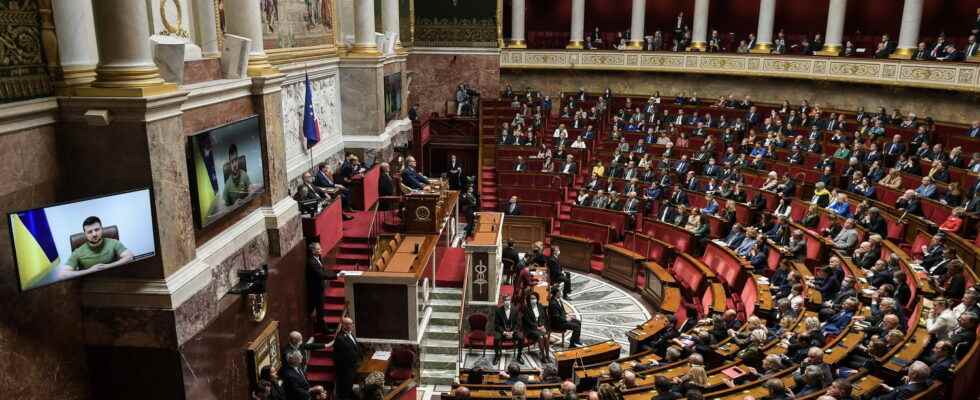PROPORTIONAL TO LEGISLATIVE. Emmanuel Macron’s campaign promise in 2017, proportional representation has still not been implemented five years later during the 2022 legislative elections which begin this Sunday, June 12 with the first round.
[Mis à jour le 12 juin 2022 à 07h29] It regularly appears in the professions of faith of candidates, especially in the presidential election, but proportional representation in elections remains a sea serpent of French political life. Jean-Luc Mélenchon, Marine Le Pen but also Fabien Roussel were among those, numerous, to promise to introduce proportional representation in the National Assembly if they won the presidential election.
Even the final winner Emmanuel Macron, re-elected on April 24 at the head of the Presidency of the Republic, had made a similar commitment during his first electoral campaign in 2017, evoking a “partial proportional”. Five years later, the method of electing deputies to the Assembly has still not changed. But what is proportional representation and why, despite all its defenders, is it still not in place for the 2022 legislative elections?
A greater role for the Assembly
Our current system of voting in legislative elections is a first-past-the-post system. This means that, for each of the territory’s 577 electoral districts, voters vote for a candidate in each round. Only candidates who have received more than 12.5% of the number of registered voters in the 1st round can qualify for the 2nd round (or, failing that, the two candidates who received the most votes). At the end of the two rounds, only one candidate per constituency is elected deputy. In a proportional ballot, on the other hand, the political parties would constitute lists. Voters would then be called upon to vote for a list, and after a single vote, the seats in the Assembly would be distributed in proportion to the percentages collected by each list.
With such a vote, two major differences: minority political tendencies, only winning a few percent, can still be represented in the Assembly. This is why the RN is very favorable to it: the two-round system, on the contrary, is detrimental to far-right candidates. Second difference: it is much more difficult for the President of the Republic to obtain an absolute majority. With proportional representation, the Assembly therefore regains a predominant role and the executive must make more compromises with the opposition.
Why did Emmanuel Macron not introduce proportional representation in the legislative elections?
“I am in favor of proportional representation in a measured way to reflect the pluralism of our political life”, said Emmanuel Macron, during the 2017 presidential campaign, on Twitter. The constitutional reform bill presented in 2018 to Parliament also planned to introduce a dose of proportionality in the legislative elections. However, this project was blocked by Parliament and finally abandoned. In 2022, during the between-two-rounds, asked about a full proportional, Macron replied: “I think we can go that far. I am not opposed to it as far as I am concerned”. One way, perhaps, to satisfy the electorate of Jean-Luc Mélenchon, the candidate who came third in the first round with his promise to set up a Sixth Republic.
In reality, Emmanuel Macron would have taken a big risk by introducing proportional representation from 2022. Because the single-member two-round ballot works in favor of moderate parties like LREM: for the 2022 legislative elections, just like during the presidential election, the Macron camp will be able to count in many constituencies on a duel in the 2nd round with the RN. The Republican front should then play its role and send many Macronist deputies to the Assembly. In the event of proportional representation, on the other hand, candidates from the RN and Nupes could return massively to the Bourbon palace: many polls on voting intentions in the 1st round even give the left in front of the Together confederation!. The presidential camp therefore has every interest in a two-round ballot.
Let us add that France has an ambivalent history with parliamentary regimes providing for a proportional election of the Assembly. This was the case of the Fourth Republic, whose last years were characterized by great political instability. The Fifth Republic, on the other hand, with its uninominal two-round ballot, was to guarantee more stability by giving more power to the executive. However, many examples of parliamentary systems using proportional representation abroad show that this does not prevent stability: in Germany, for example, the members of the Bundestag are elected with a strong dose of proportional representation. In Austria, proportional representation is even integral.
